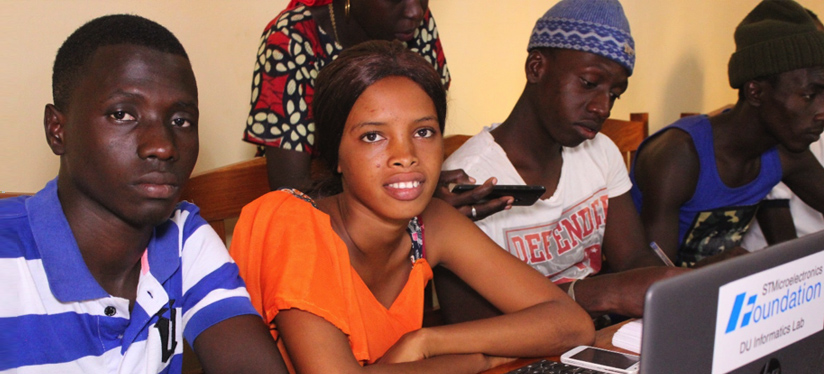

Since its creation in 2003, the ICB course has played an essential role in our educational outreach, enrolling no more than 20 students per session to ensure equal access to learning resources. This 20-hour course, which is available in seven languages (i.e., Chinese, English, French, German, Italian, Portuguese, and Spanish) with flexibility for additional languages as needed, is designed to help beginners overcome tech apprehensions while learning essential computer skills. After completion, students should be able to use Microsoft Office competently, browse the Internet safely, manage email communications, engage responsibly on social media, and use various online platforms such as Google Meet. The course ends with an online exam to assess the skills gained and the program’s effectiveness, with certificates granted to those who attend at least 80% of the sessions. This recognition improves employability across a variety of countries. Moreover, the ICB course is offered in our Digital Unify training centers, which use the model lab approach to provide global standardization in lab design and equipment requirements.
It is crucial to highlight the impact of the ICB course, which represents 92% of our initiatives. Through our online reporting system, which already tracks all our activities in real-time, we can also evaluate the impact of the ICB courses. It provides insights into beneficiary profiles, needs, and the impact of our activities. By tracking quantitative and qualitative data, we can observe changes in student behavior after completing the course. Specifically for 2023, the results are as follows:
- Knowledge sharing – 93% of students express their willingness to share their newfound knowledge with family and friends, extending the course’s influence beyond the classroom.
- Recommendation – 91% of students endorse the course, highlighting its value and relevance.
- Digital proficiency – following course completion, 78% of students report significantly increasing their familiarity with personal computers, marking a milestone in their e-literacy path.
Furthermore, previously digitally marginalized individuals now show a renewed eagerness to leverage their acquired skills for various purposes:
- Internet navigation – 82% individuals aspire to confidently navigate online, expanding their access to information and opportunities.
- Social connectivity – 80% individuals desire to engage with friends and communities through social media platforms, promoting social inclusion and connectivity.
- Functional skills – 76% individuals are now proficient in performing basic digital tasks such as calculations and email management, enhancing efficiency and productivity.
- Moreover, the ICB course catalyzes socio-economic empowerment, with 66% of students actively utilizing their newfound skills to pursue employment opportunities.
If we complement the quantitative data with the analysis of qualitative feedback provided by the students using the open questions in the online system, we can confirm the transformative impact of the ICB course. Not only do students acquire technical skills, but they also develop the confidence to apply these skills in their daily and professional lives. Their willingness to share the knowledge gained and to use the new skills to enhance their socio-economic opportunities reflects the effectiveness of our program. This qualitative data reinforces our commitment to promoting digital inclusion and empowerment through education, underlining the fundamental role of the ICB course as a catalyst for positive change for individuals and communities.
